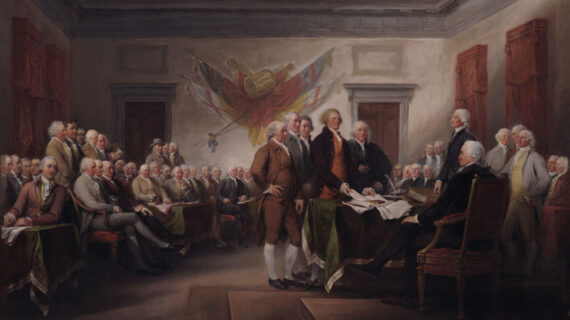Frederica Freyberg:
At the Capitol this week, Chairman Robert Van Zile of the Sokaogon Chippewa community addressed the Legislature in the annual State of the Tribes Address. A top issue for tribes across Wisconsin he says is affordable and accessible quality healthcare.
Robert Van Zile:
The tribes face a huge barrier with recruiting and retaining medical staff since the pandemic. Wages of healthcare professionals have skyrocketed. It’s very difficult for a tribe to compete with the wages for healthcare professionals at this time. Tribes work on very limited funds from the Indian Healthcare Services, which barely covers wages.
Frederica Freyberg:
To understand more of the health challenges Wisconsin tribes encounter, we turn to Debra Danforth, director of the Oneida Comprehensive Health Division. Thanks very much for being here.
Debra Danforth:
Thank you.
Frederica Freyberg:
So according to your latest community health assessment, 26% of respondents said that they had to delay care because they couldn’t be seen soon enough. So is healthcare access hindered by these wage pressures and difficulty recruiting medical talent, as was pointed to in the State of the Tribes?
Debra Danforth:
Most definitely. Many of the tribes, particularly for Oneida, we have a great deal of difficulty in terms of recruiting and retaining providers. We’ve had some positions that we’ve had posted probably since even before the pandemic started, so it was difficult prior to and then when the pandemic hit, it even complicated the matters greatly. We are not able to be as competitive as our partners in healthcare in the surrounding communities, and for Oneida, we’re fortunate in that we’re in a pretty popular location in terms of our access to other healthcare facilities and other healthcare systems. However, for the tribes that are much smaller than us that are located in the northern areas of Wisconsin and throughout the other areas of Wisconsin, it is extremely difficult to try and be competitive with some of the healthcare systems in those areas. So recruitment and retention has always been an issue, but it has been magnified by the pandemic simply because we can’t be competitive. It’s very difficult for people to get access to care, and with the limitation of funding that we receive, it’s often — makes it even more difficult for us.
Frederica Freyberg:
As to the people that you are caring for, your annual assessment also showed that 85% of those enrolled in the Oneida are overweight or obese and 25% have diabetes. How major a challenge are these kinds of health profiles?
Debra Danforth:
The work that we’ve been continuing to do in our community, as has many of the other tribes, as a result of the IHS and special diabetes programs, they have been able to educate the communities and give people hope that, by providing opportunities for exercise, providing opportunities for diet and education, they have been able to make impacts into controlling diabetes within our communities. Still not to where we need to be, but we’re heading in the right direction. It’s interesting that a few years ago, we did have a number of people that were — we had a number of high rates of amputations as a result of uncontrolled diabetes. We have been able to see that impact improve where there’s very few amputations from our diabetic patients that there used to be — I mean, it used to be something that we dealt with on a regular basis, and with the work that we’re doing, we can see those impacts. Does it take a while? Yeah. 25, 30 years to see that impact in our community, but we’re seeing that impact, and that’s what I think keeps all of us as healthcare providers struggling and fighting to make sure that our communities have that access and make sure that they can help to continue to improve overall for our community.
Frederica Freyberg:
I want to talk about this next point, too. The number of opioid deaths among American Indians in Wisconsin according to the Department of Health Services is reported as 2-1/2 times higher than the statewide rate. How crushing is this crisis where you are?
Debra Danforth:
This crisis affects all of the tribes, not just in Wisconsin, but across the country. The opioid crisis has been very evident and, you know, we’ve done a lot of work with trying to address education in the community, doing outreach into the communities, but many of our tribes are facing the same level of crisis within their communities. A lot of that is related to, again, access to care. We have limitations in terms of being able to get access to mental health providers. Many times it’s not just the drug or the alcohol itself; it’s a combination. It’s dual diagnoses, it’s mental health on top of opioids on top of alcohol, on top of whatever other drug is their drug of choice, and then having access to care, you know, complicates that. We don’t have enough of the mental health providers to be able to provide that service. We don’t have the ability to provide the services like in-patient care that’s necessary to treat the drug addictions and the alcohol addictions, and so many of our community members have to be sent outside of our communities, they have to be sent out of the state to be able to get the specific services that they need and then when they do come back, again, they’re faced with the same kinds of complexities of coming back to the same community they left, coming back to the same types of triggers that they left.
Frederica Freyberg:
You are doing the good work. Debra Danforth, thanks very much.
Debra Danforth:
Mm-hmm.
Search Episodes

Donate to sign up. Activate and sign in to Passport. It's that easy to help PBS Wisconsin serve your community through media that educates, inspires, and entertains.
Make your membership gift today
Only for new users: Activate Passport using your code or email address
Already a member?
Look up my account
Need some help? Go to FAQ or visit PBS Passport Help
Need help accessing PBS Wisconsin anywhere?

Online Access | Platform & Device Access | Cable or Satellite Access | Over-The-Air Access
Visit Access Guide
Need help accessing PBS Wisconsin anywhere?

Visit Our
Live TV Access Guide
Online AccessPlatform & Device Access
Cable or Satellite Access
Over-The-Air Access
Visit Access Guide
 Passport
Passport








Follow Us